Perception Management
by Bruce McRae
How it is and how it isn’t…
We look for you as if a lost key,
retracing our steps, constructing models,
comparing the right eye to the left.
We employ statistics, the blunt instruments
of guesswork and guesstimates,
and see little harm in chicanery.
Lies can be good for you.
We’re building a better monster,
history airbrushed, the rain holding off,
sin considered an accomplishment.
Now we’re tapping the collective consciousness,
a ready source of gods and archetypes.
We’re instructing you in the art of complacency,
the law on the side of the lawyers.
A hush falls over the Earth
as we prepare our presentation,
including suitable lighting and soothing ambiance.
Even the dead are invited to dine.
Even the living.
Identity Crisis
You were the Wife of Bath
and I was Claudius Ptolemy.
I was your sixth or seventh husband
and you were my invisible lover, Mrs. Succubus.
We played games in the sack by candlelight.
We crossed deserts.
Some days we didn’t even know each other.
Little wonder I was so confused.
How does one label their experiences
when rampaging Visigoth’s are at the gate?
With biblical floodwaters rising?
In these damnable firestorms?
One minute we’re Bedouins in a Saharan caravan
and the next we’re planting tomatoes back in Omaha.
“Now you see me, now you don’t,”
you cried out from behind a burning mulberry bush.
And I couldn’t have said it any better.
Step Forward
They wanted a volunteer.
I brought them a head on a silver salver.
I pulled your name out of a hat.
I gave them my neighbour’s phone number.
They required donations;
all for a good cause, we were assured.
So I took the loose change out of your pocket,
the gold fillings out of your mouth,
the two pennies reserved for your eyelids.
The gods demand a sacrifice, they insisted.
Of course, we nodded in unison,
jostling for the honour of being first,
taking turns jumping into the bonfire.
Unrestrained in our passion.
BIO
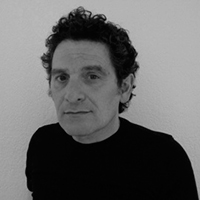 Pushcart nominee Bruce McRae is a Canadian musician with over 900 poems published internationally, including Poetry.com, Rattle and The North American Review. His first book, The So-Called Sonnets is available via Silenced Press and Amazon. To see and hear more poems go to ‘BruceMcRaePoetry’ on YouTube.
Pushcart nominee Bruce McRae is a Canadian musician with over 900 poems published internationally, including Poetry.com, Rattle and The North American Review. His first book, The So-Called Sonnets is available via Silenced Press and Amazon. To see and hear more poems go to ‘BruceMcRaePoetry’ on YouTube.

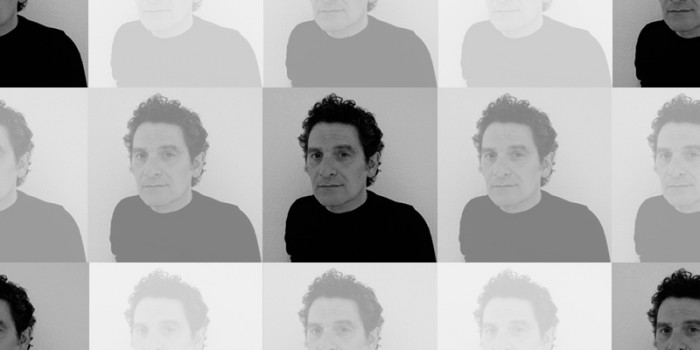

 Lauren Vargas is currently working towards an MFA at Queens University and is a full time writing curriculum-tutor in Southern California. She believes in the power of language and poetry. Her works have previously appeared in ElevenEleven, Ampersand Literary Journal, Chinquapin Literary Journal, and CalibanOnline.
Lauren Vargas is currently working towards an MFA at Queens University and is a full time writing curriculum-tutor in Southern California. She believes in the power of language and poetry. Her works have previously appeared in ElevenEleven, Ampersand Literary Journal, Chinquapin Literary Journal, and CalibanOnline.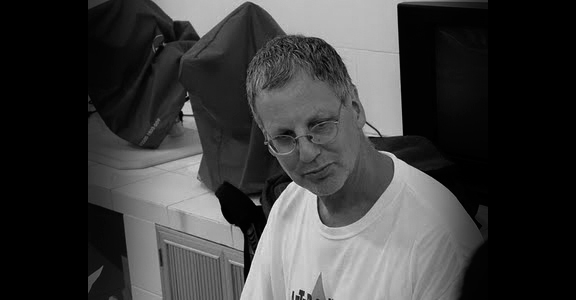
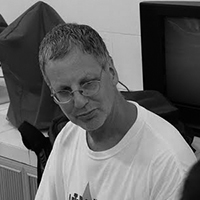 Michael H. Brownstein has been widely published throughout the small and literary presses. His work has appeared in The Café Review, American Letters and Commentary, Skidrow Penthouse, Xavier Review, Hotel Amerika, Free Lunch, Meridian Anthology of Contemporary Poetry, The Pacific Review, Poetrysuperhighway.com and others. In addition, he has nine poetry chapbooks including The Shooting Gallery (Samidat Press, 1987), Poems from the Body Bag (Ommation Press, 1988), A Period of Trees (Snark Press, 2004), What Stone Is (Fractal Edge Press, 2005), I Was a Teacher Once (Ten Page Press, 2011) and Firestorm: A Rendering of Torah (Camel Saloon Press, 2012). He is the editor of First Poems from Viet Nam (2011).
Michael H. Brownstein has been widely published throughout the small and literary presses. His work has appeared in The Café Review, American Letters and Commentary, Skidrow Penthouse, Xavier Review, Hotel Amerika, Free Lunch, Meridian Anthology of Contemporary Poetry, The Pacific Review, Poetrysuperhighway.com and others. In addition, he has nine poetry chapbooks including The Shooting Gallery (Samidat Press, 1987), Poems from the Body Bag (Ommation Press, 1988), A Period of Trees (Snark Press, 2004), What Stone Is (Fractal Edge Press, 2005), I Was a Teacher Once (Ten Page Press, 2011) and Firestorm: A Rendering of Torah (Camel Saloon Press, 2012). He is the editor of First Poems from Viet Nam (2011).
 Hannah Frishberg is a freelance writer and photographer whose work has previously appeared in the Huffington Post, Gothamist, Narratively, Curbed, Atlas Obscura, and Urban Omnibus, among others. She is a fourth generation Brooklynite and is working on a book about the Gowanus Batcave.
Hannah Frishberg is a freelance writer and photographer whose work has previously appeared in the Huffington Post, Gothamist, Narratively, Curbed, Atlas Obscura, and Urban Omnibus, among others. She is a fourth generation Brooklynite and is working on a book about the Gowanus Batcave.
 René Ostberg is a native Chicagoan who still resides in Illinois. She writes a blog with a travel theme called ‘Writing and Wayfaring’. Her writing and photography have been featured at Drunk Monkeys, Literary Orphans, Booma: The Bookmapping Project, Eunoia Review, Wilderness House Literary Review, We Said Go Travel, Rockwell’s Camera Phone, and the Encyclopaedia Britannica blog, among other places. You can read more of her work at reneostberg.wordpress.com.
René Ostberg is a native Chicagoan who still resides in Illinois. She writes a blog with a travel theme called ‘Writing and Wayfaring’. Her writing and photography have been featured at Drunk Monkeys, Literary Orphans, Booma: The Bookmapping Project, Eunoia Review, Wilderness House Literary Review, We Said Go Travel, Rockwell’s Camera Phone, and the Encyclopaedia Britannica blog, among other places. You can read more of her work at reneostberg.wordpress.com.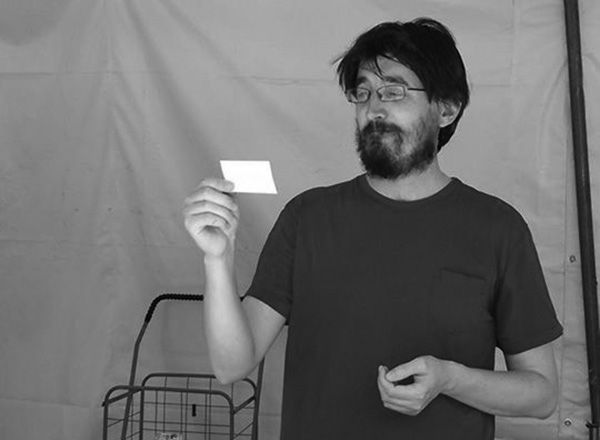
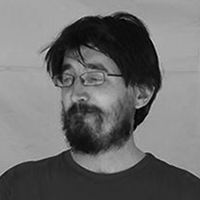 Robin Wyatt Dunn writes and teaches in Los Angeles. He’s online at robindunn.com
Robin Wyatt Dunn writes and teaches in Los Angeles. He’s online at robindunn.com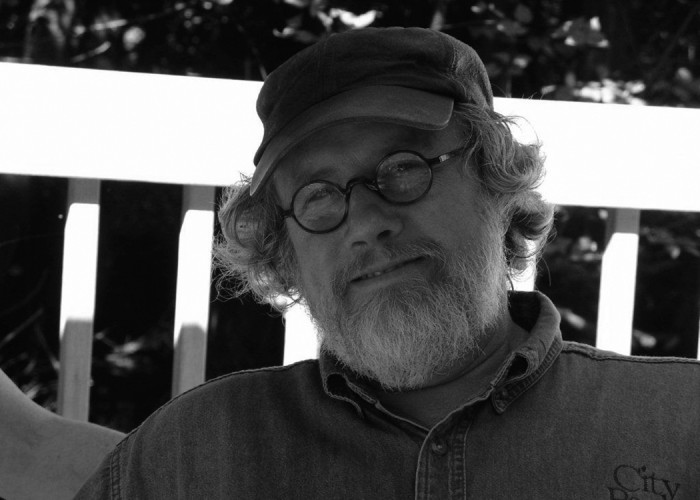
 Charles W. Brice is a psychoanalyst and a freelance writer in Pittsburgh, PA. His poetry has appeared in The Atlanta Review, Icon, Xanadu, The Quotable, The Paterson Literary Review, The Pittsburgh Post-Gazette, Spitball, Barbaric Yawp, The Potomac, Shadow Road Quarterly, Wild Violet Magazine, Z-Composition, Arsonzine, Bear River Review, Jerry Jazz Musician, and The Front Weekly. Honors: “Goodbye,” third place, 2012 Literary Life Bookstore Poetry Contest (Robert Fanning, judge); “What She Held – 1966,” Editor’s Choice, 2013 Allen Ginsburg Poetry Contest; “Michigan Icebreaker,” semifinalist, 2013 Bailey-Beads Poetry Contest, University of Pittsburgh. Charles was recently named an International Merit Award winner of the Atlanta Review’s 2015 International Poetry Competition.
Charles W. Brice is a psychoanalyst and a freelance writer in Pittsburgh, PA. His poetry has appeared in The Atlanta Review, Icon, Xanadu, The Quotable, The Paterson Literary Review, The Pittsburgh Post-Gazette, Spitball, Barbaric Yawp, The Potomac, Shadow Road Quarterly, Wild Violet Magazine, Z-Composition, Arsonzine, Bear River Review, Jerry Jazz Musician, and The Front Weekly. Honors: “Goodbye,” third place, 2012 Literary Life Bookstore Poetry Contest (Robert Fanning, judge); “What She Held – 1966,” Editor’s Choice, 2013 Allen Ginsburg Poetry Contest; “Michigan Icebreaker,” semifinalist, 2013 Bailey-Beads Poetry Contest, University of Pittsburgh. Charles was recently named an International Merit Award winner of the Atlanta Review’s 2015 International Poetry Competition.
 Emily Strauss has an M.A. in English, but is self-taught in poetry, which she has written since college. Over 250 of her poems appear in a wide variety of online venues and in anthologies in the U.S. and abroad. The natural world is generally her framework; she also considers the stories of people and places around her and personal histories. She is a semi-retired teacher living in California.
Emily Strauss has an M.A. in English, but is self-taught in poetry, which she has written since college. Over 250 of her poems appear in a wide variety of online venues and in anthologies in the U.S. and abroad. The natural world is generally her framework; she also considers the stories of people and places around her and personal histories. She is a semi-retired teacher living in California.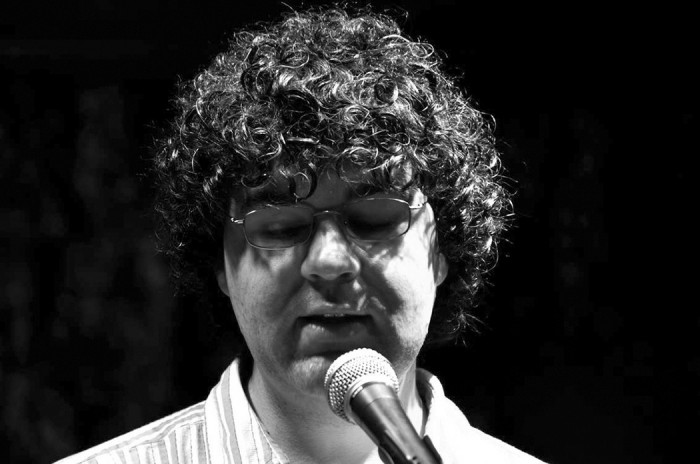
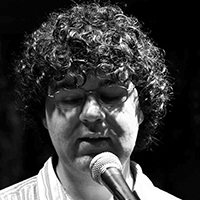 Jon Riccio studied viola performance at Oberlin College and the Cleveland Institute of Music. A recent Pushcart nominee, his work has appeared or is forthcoming in Paper Nautilus, Qwerty,Redivider, CutBank Online, Waxwing and Switchback, among others. An MFA candidate at the University of Arizona, he resides in Tucson.
Jon Riccio studied viola performance at Oberlin College and the Cleveland Institute of Music. A recent Pushcart nominee, his work has appeared or is forthcoming in Paper Nautilus, Qwerty,Redivider, CutBank Online, Waxwing and Switchback, among others. An MFA candidate at the University of Arizona, he resides in Tucson.
 Sandra Rokoff-Lizut, retired educator and children’s book author (published by Macmillan, Holt Reinhart & Winston, and Hallmark Inc.), is currently both a printmaker and poet. She is a member of Oregon Poetry Association and first place award winner in their Spring 2014 contest, Mary’s Peak Poets, Poetic License, Gertrude’s, and a weekly writing salon. Rokoff-Lizut volunteers by teaching poetry to middle-schoolers at the Boys and Girls Club in Corvallis. She also studied poetry through OSU as well as at Sitka and Centrum. Previous publications include Illya’s Honey, The Bicycle Review, Wilderness House Review, The Penwood Review, Wild Goose Poetry Review and Verseweavers.
Sandra Rokoff-Lizut, retired educator and children’s book author (published by Macmillan, Holt Reinhart & Winston, and Hallmark Inc.), is currently both a printmaker and poet. She is a member of Oregon Poetry Association and first place award winner in their Spring 2014 contest, Mary’s Peak Poets, Poetic License, Gertrude’s, and a weekly writing salon. Rokoff-Lizut volunteers by teaching poetry to middle-schoolers at the Boys and Girls Club in Corvallis. She also studied poetry through OSU as well as at Sitka and Centrum. Previous publications include Illya’s Honey, The Bicycle Review, Wilderness House Review, The Penwood Review, Wild Goose Poetry Review and Verseweavers.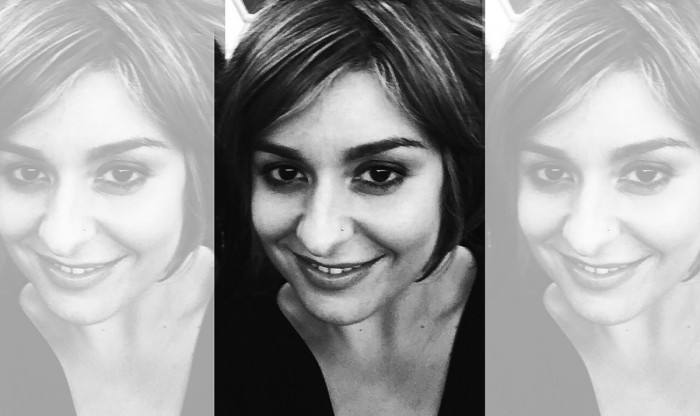
 Marina Carreira is a Luso-American writer from the Ironbound section of Newark, NJ. She holds a BA in English from Montclair State University and a MFA in Creative Writing from Rutgers University. Marina is an adjunct professor of English at Essex County College and a correspondent for the Luso-Americano newspaper. She is curator and co-host of “Brick City Speaks”, a monthly reading series at Hell’s Kitchen Lounge in Newark, NJ. Her work is featured or forthcoming in The Acentos Review, Naugatuck River Review, Writers of the Portuguese Diaspora: An Anthology, and Paterson Literary Review.
Marina Carreira is a Luso-American writer from the Ironbound section of Newark, NJ. She holds a BA in English from Montclair State University and a MFA in Creative Writing from Rutgers University. Marina is an adjunct professor of English at Essex County College and a correspondent for the Luso-Americano newspaper. She is curator and co-host of “Brick City Speaks”, a monthly reading series at Hell’s Kitchen Lounge in Newark, NJ. Her work is featured or forthcoming in The Acentos Review, Naugatuck River Review, Writers of the Portuguese Diaspora: An Anthology, and Paterson Literary Review.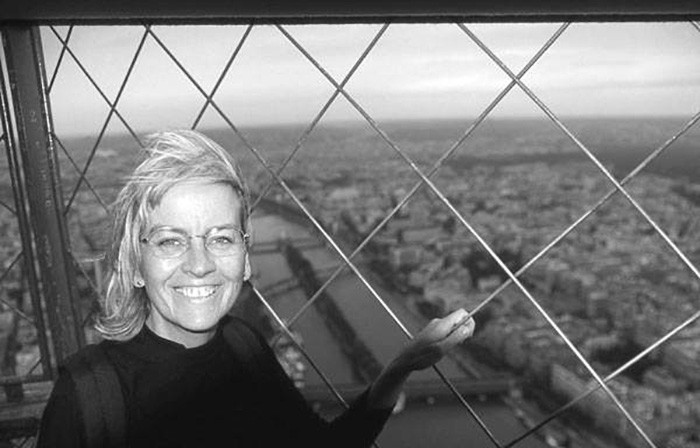
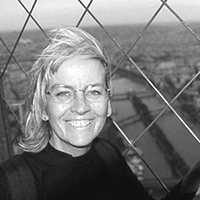 Kelly Thompson’s writing has been published in 49 Writers, Manifest Station, Metrosphere, Limp Wrist, and Reflections: Narratives of Professional Helping. She has won awards for her poetry from Writer’s Digest and was awarded funding to attend Key West Literary Seminar based on her short fiction. She is currently working on a memoir entitled Oh Darling Girl. Just as the narrator gets sober, one of her two barely adolescent daughters descends into addiction and rebels against her mother’s new found lifestyle of recovery. As the narrator struggles to save her daughter and face down a transgenerational legacy of violence, addiction, and shame, the lives of grandchildren hang in the balance and heartbreaking choices must be made. Kelly is also currently working on a chapbook of poetry focused on the themes of ancestry, transgenerational trauma, and legacy. Besides writing, Kelly is a psychotherapist who primarily works with soldiers returning from the wars in Iraq and Afghanistan, and their families. Kelly lives in Denver, Colorado, in the sunshine of the spirit. You can follow her on Twitter @stareenite.
Kelly Thompson’s writing has been published in 49 Writers, Manifest Station, Metrosphere, Limp Wrist, and Reflections: Narratives of Professional Helping. She has won awards for her poetry from Writer’s Digest and was awarded funding to attend Key West Literary Seminar based on her short fiction. She is currently working on a memoir entitled Oh Darling Girl. Just as the narrator gets sober, one of her two barely adolescent daughters descends into addiction and rebels against her mother’s new found lifestyle of recovery. As the narrator struggles to save her daughter and face down a transgenerational legacy of violence, addiction, and shame, the lives of grandchildren hang in the balance and heartbreaking choices must be made. Kelly is also currently working on a chapbook of poetry focused on the themes of ancestry, transgenerational trauma, and legacy. Besides writing, Kelly is a psychotherapist who primarily works with soldiers returning from the wars in Iraq and Afghanistan, and their families. Kelly lives in Denver, Colorado, in the sunshine of the spirit. You can follow her on Twitter @stareenite.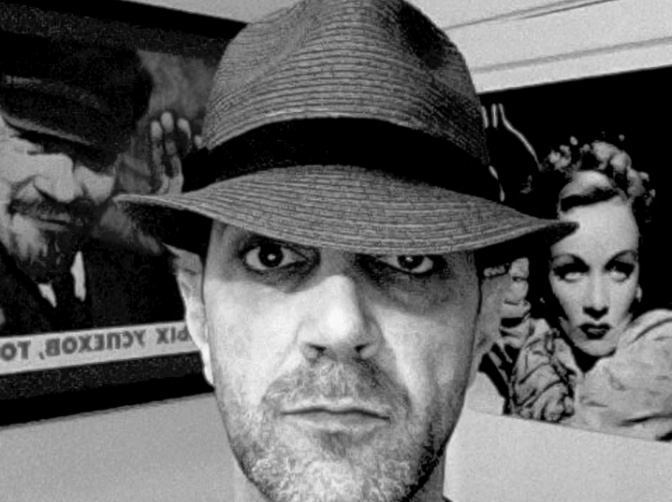
 John Lowther’s work appears in the Atlanta Poets Group’s anthology, The Lattice Inside (UNO Press, 2012) and in Another South: Experimental Writing in the South (U of Alabama, 2003). Held to the Letter, co-authored with Dana Lisa Young is forthcoming from Lavender Ink in 2015. John also works in video, photography, paint, performance and other mediums as the need arises. He’s writing a dissertation to reimagine psychoanalysis had intersex and transgender lives been taken as foundational for understanding subjective possibility. He blogs as Lowtherpoet at WordPress.
John Lowther’s work appears in the Atlanta Poets Group’s anthology, The Lattice Inside (UNO Press, 2012) and in Another South: Experimental Writing in the South (U of Alabama, 2003). Held to the Letter, co-authored with Dana Lisa Young is forthcoming from Lavender Ink in 2015. John also works in video, photography, paint, performance and other mediums as the need arises. He’s writing a dissertation to reimagine psychoanalysis had intersex and transgender lives been taken as foundational for understanding subjective possibility. He blogs as Lowtherpoet at WordPress. Gerard Sarnat is the author of three collections, 2010’s HOMELESS CHRONICLES from Abraham to Burning Man, 2012’s Disputes, and September 2014’s 17s. He is now working on Patriarchs. Harvard and Stanford educated, Gerry’s set up and staffed clinics for the disenfranchised, been a CEO of healthcare organizations and a Stanford professor. For Huffington Post reviews, future reading dates and more, visit Gerard Sarnat.com. His books are available at select bookstores and on Amazon.
Gerard Sarnat is the author of three collections, 2010’s HOMELESS CHRONICLES from Abraham to Burning Man, 2012’s Disputes, and September 2014’s 17s. He is now working on Patriarchs. Harvard and Stanford educated, Gerry’s set up and staffed clinics for the disenfranchised, been a CEO of healthcare organizations and a Stanford professor. For Huffington Post reviews, future reading dates and more, visit Gerard Sarnat.com. His books are available at select bookstores and on Amazon.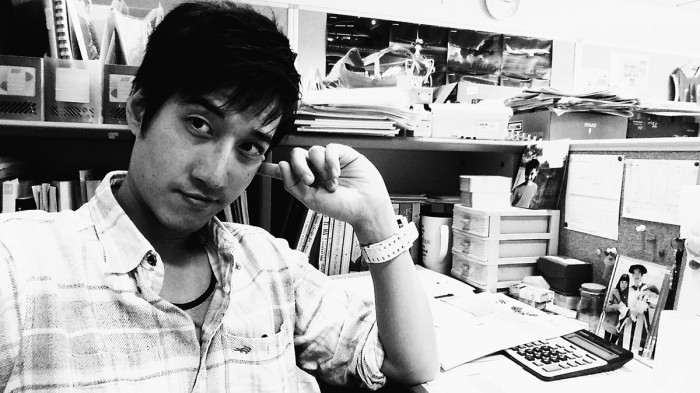
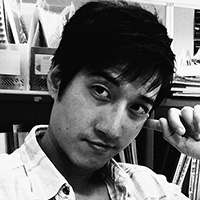 Ho Cheung (Peter) Lee, Ed.D., resides in Hong Kong where he teaches and writes. He earned his doctorate from The University of Hong Kong with a thesis on teaching reading. His poetry has appeared in aaduna, FIVE Poetry Magazine, Poetry Pacific, Red Booth Review, The Chaffey Review, The Interpreter’s House and elsewhere. His short stories have also been published in Eastlit, Miracle Magazine, River Poets Journal and The Oddville Press. He is the founder and Editor-in-Chief of BALLOONS Lit. Journal (www.balloons-lit-journal.com).
Ho Cheung (Peter) Lee, Ed.D., resides in Hong Kong where he teaches and writes. He earned his doctorate from The University of Hong Kong with a thesis on teaching reading. His poetry has appeared in aaduna, FIVE Poetry Magazine, Poetry Pacific, Red Booth Review, The Chaffey Review, The Interpreter’s House and elsewhere. His short stories have also been published in Eastlit, Miracle Magazine, River Poets Journal and The Oddville Press. He is the founder and Editor-in-Chief of BALLOONS Lit. Journal (www.balloons-lit-journal.com).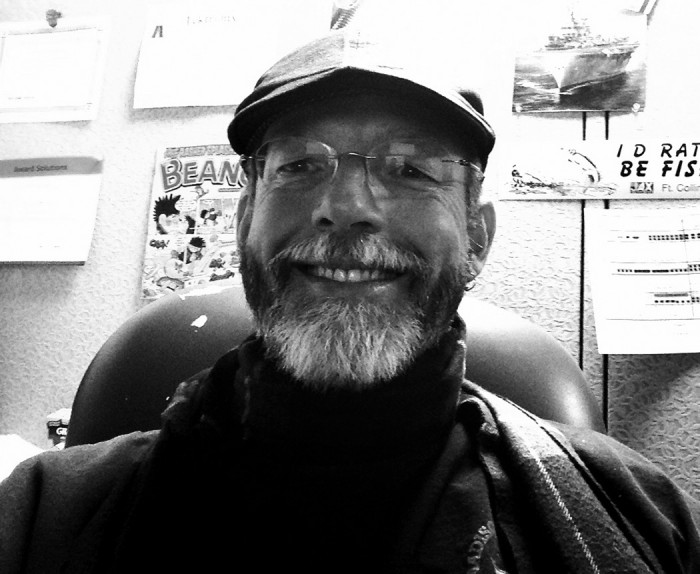
 Kevin McCoy’s works have appeared in Forge, Wisconsin Review, Crate, Natural Bridge and several other journals. His collection “Tea in a Bowl” will be published by Unsolicited Press in January 2015.
Kevin McCoy’s works have appeared in Forge, Wisconsin Review, Crate, Natural Bridge and several other journals. His collection “Tea in a Bowl” will be published by Unsolicited Press in January 2015. John McKernan – who grew up in Omaha Nebraska in the middle of the USA – is now a retired comma herder / Phonics Coach after teaching for 41 years at Marshall University. He lives – mostly – in West Virginia where he edits ABZ Press. His most recent book is a selected poems Resurrection of the Dust. He has published poems in The Atlantic Monthly, The Paris Review, The New Yorker, Virginia Quarterly Review, The Journal, Antioch Review, Guernica, Field and many other magazines.
John McKernan – who grew up in Omaha Nebraska in the middle of the USA – is now a retired comma herder / Phonics Coach after teaching for 41 years at Marshall University. He lives – mostly – in West Virginia where he edits ABZ Press. His most recent book is a selected poems Resurrection of the Dust. He has published poems in The Atlantic Monthly, The Paris Review, The New Yorker, Virginia Quarterly Review, The Journal, Antioch Review, Guernica, Field and many other magazines.











